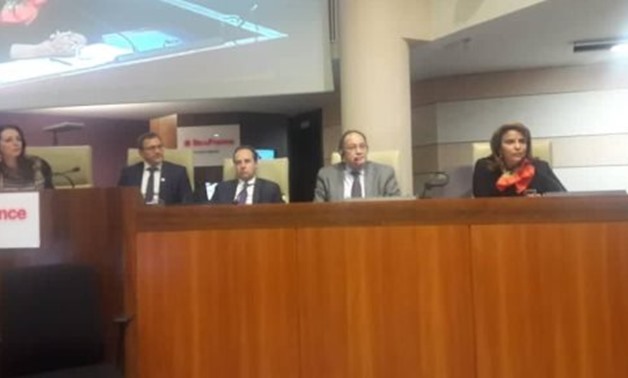
Part of France's anti-terrorism conference - Press Photo
CAIRO - 12 December 2018: "The fate of the Christian communities in the Middle East and North Africa is a sensitive issue that must be dealt with objectively away from political agendas," said Hafez Abu Se'da, a member of the National Council for Human Rights.
This came during Abu Se'da's participation in the Paris conference on combating extremism and protecting Christians of the Middle East.
Abu Se'da added that it should be noted that the Muslim Brotherhood based their ideas on the marginalization of minorities in general and the persecution of Christians in particular, but the Egyptian government gave the Egyptian Copts their full rights.
He pointed out that Egypt witnessed a wave of violent terror attacks by Islamic groups which promoted extremist ideology and targeted Christians' properties and churches, most notably the attack on Abbasia Cathedral in 2013.
"In fact, the terrorism wave targeted Christians and Muslims, as we saw in the attack on Sinai'sAl-Rawda Mosque in 2017, which killed 300 Muslim citizens," Se'da said.
At the end of the conference, the participants agreed to confront extremism and hatred across the world to protect human rights; they also affirmed the importance of ending conflicts in Libya and Syria.
The participants also called for strengthening the role of religious institutions in confronting terrorism and extremism and renewing the religious discourse. They demanded to reform education and to strengthen the role of art and media in raising awareness against extremism.
In the same context, President Abdel Fatah al-Sisi called for the renewal of the religious discourse. Furthermore, the Parliament issued the Law on the Construction and Restoration of the Egyptian Churches in 2017 which is considered the first law to regulate building churches for Christians in more than a century and a half.
"As a member of the National Council for Human Rights and the president of the Egyptian Organization for Human Rights, I call on the Egyptian government, other Arab governments and the Arab civil society to support the initiative launched by the United Nations High Commissioner for Human Rights which calls for preserving human rights and fighting extremism and terrorism in the Middle East," Se'da concluded.
Comments
Leave a Comment